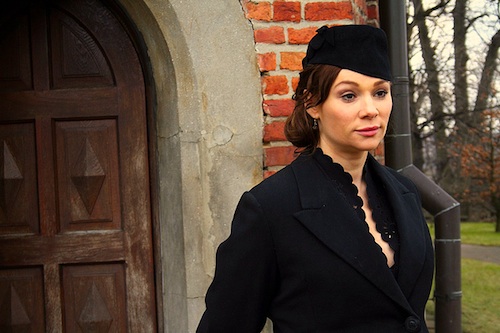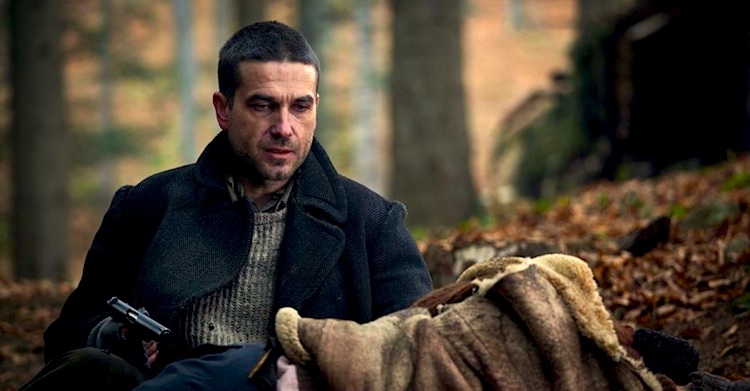By Joe Bendel. Corporal Wydra is the designated executioner in his Polish resistance unit. He is a sensitive soul, yet very good at his job. This is the contradictory nature of war and it will only get more treacherous for the soldier in Marcin Krzyształowicz’s Manhunt, which screens today and tomorrow as part of the 2012 World Film Festival of Montreal.
Captured National Socialists are lucky if Wydra is the man taking them out. He is not a sadist or a vengeance taker. He is a freedom fighter with a grim task to complete. We get a good feel for the complicated man at work as the film opens. His next assignment, though, will be considerably thornier. He is to go into town and bring back a prominent businessman turned informant, the hard way or the easy way, for trial and presumed execution. However, Wydra has some decidedly personal history with the thoroughly compromised Henryk Kondolewicz.
Meanwhile, a member of the unit has betrayed Wydra’s comrades, funneling information through the very snitch he has been dispatched to deal with. The Corporal will be too late to help his fallen brothers-in-arms, but he will be able to put together the pieces and possibly dispense some retribution.

In fact, Manhunt is a bit of a narrative jigsaw puzzle, constantly flashing backwards and forwards, providing more context with each successive time shift. Actually the crosses and double-crosses are relatively straight forward, but the existential depth of Wydra’s character really distinguishes Manhunt from thematically related WWII dramas.
While not completely dissimilar to the grizzled Home Army veteran he played in Wojtek Smarzowski’s Rose, Marcin Dorociński is riveting nonetheless as the massively brooding Wydra. Chillingly convincing when getting down to business, he also quite compellingly hints at the pain eating his Wydra’s soul. He dominates the film and that’s fine.
In the tradition of Melville’s Army of Shadows, Krzyształowicz’s screenplay explores the moral ambiguity and constant uncertainty of the resistance milieu. Like Melville, he understands and even pardons his characters’ betrayals. Aptly suiting the tense vibe, cinematographer Arkadiusz Tomiak’s dark, musty look vividly suggests the sense of trooping through a dank forest. This is definitely war cinema, gritty and unromanticized. It is also a very good film, well worth seeing when it screens twice today and once on Saturday (8/25) during the World Film Festival in Montreal.
LFM GRADE: B
Posted on August 24th, 2012 at 10:36am.
